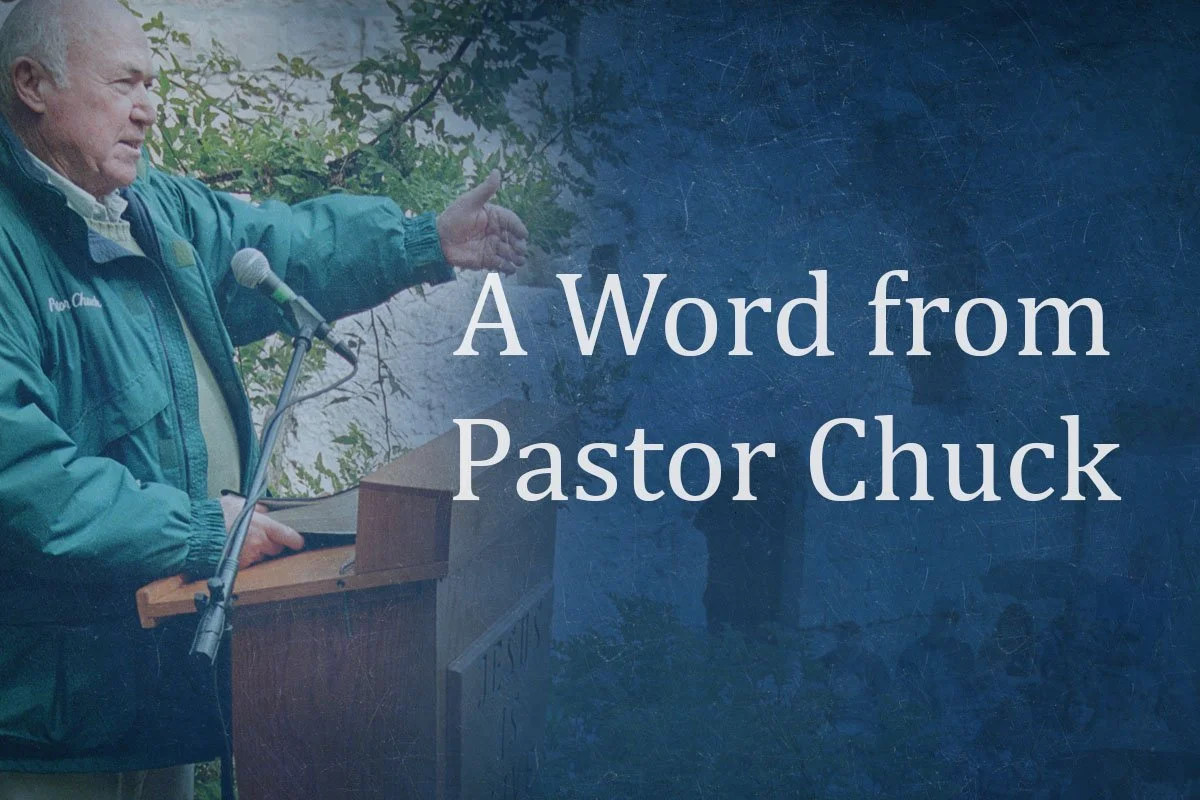The Rapture—Part 3
Simply Teaching the Word Simply—Pastor Chuck Smith
Originally published in issue 17 of Calvary Chapel Magazine
The book of Revelation is divided into three sections according to Revelation 1:19: “Write the things which thou hast seen, and the things which are, and the things which shall be hereafter.” Chapter One, that which John “hast seen,” describes Jesus in His glorified state. Chapters Two and Three, the “things which are,” refer to Jesus’ messages to the seven churches of Asia. I believe these were seven actual churches, but also that they refer to seven periods of Church history and to churches in our present day.
Many churches today have left their first love. They have put Jesus outside and embraced false doctrines. They claim to be alive, but in reality, they are dead. Still other churches have experienced persecution. Then there is the Philadelphian church, that which “hast a little strength, and hast kept my word, and hast not denied my name” (Revelation 3:8). We may not be earth-shaking, but thank God, we are making a little impression!
We may not be earth-shaking, but thank God, we are making a little impression!
In Chapter Four, Jesus introduces a new section with the Greek word, metatauta (after these things). We need to ask, “After what things?” The answer is: after the events of Chapters Two and Three – after the Church Age. Revelation 4:1–2 says, “After this I looked, and, behold, a door was opened in heaven: and the first voice which I heard was as it were of a trumpet talking with me; which said, Come up hither, and I will shew thee things which must be hereafter. And immediately I was in the spirit; and, behold, a throne was set in heaven, and one sat on the throne.”
John then describes the throne of God with its emerald rainbow round about, cherubim worshiping, and twenty-four elders on their faces casting their golden crowns on the glassy sea as they declare, “Thou art worthy, O Lord, to receive glory and honour and power: for thou hast created all things, and for thy pleasure they are and were created” (Revelation 4:11).
Next, John’s attention is drawn to a scroll with seven seals and writing both inside and out. An angel loudly proclaims, “Who is worthy to open the book, and to loose the seals thereof?” (Revelation 5:2b) John wept because “no man was found worthy to open and to read the book, neither to look thereon” (Revelation 5:4).
I believe this scroll is the title deed to the earth according to the Jewish Law of Redemption, which established a time for the redemption of lost property provided that the requirements within the deed were fulfilled. We see this when Boaz redeemed a field that he might obtain his bride, Ruth, and when Jesus paid for the sins of the world that He might redeem His bride, the Church.
... Jesus paid for the sins of the world that He might redeem His bride, the Church.
Under Jewish law, if property wasn’t redeemed at the appointed time, it went to the new owner perpetually. John sobs convulsively over the thought of a world forever under Satan’s dominion until an elder says, “Weep not: behold, the Lion of the tribe of Juda, the Root of David, hath prevailed to open the book, and to loose the seven seals thereof” (Revelation 5:5b).
Revelation 5:7–10 says the Lion of Judah, the Lamb of God “came and took the book out of the right hand of him that sat upon the throne. And when he had taken the book, the four beasts and four and twenty elders fell down before the Lamb, having every one of them harps, and golden vials full of odours, which are the prayers of saints. And they sung a new song, saying, Thou art worthy to take the book, and to open the seals thereof: for thou wast slain, and hast redeemed us to God by thy blood out of every kindred, and tongue, and people, and nation; and hast made us unto our God kings and priests: and we shall reign on the earth.”
We will be among the heavenly chorus rejoicing as He takes the scroll out of the right hand of the One seated on the throne, receiving the title deed to the earth. In Luke 21, Jesus told His disciples about the signs of His Second Coming and the Great Tribulation that would precede the end of the age. He said, “Watch ye therefore, and pray always, that ye may be accounted worthy to escape all these things that shall come to pass, and to stand before the Son of man” (Luke 21:36).
The Church sings the song of redemption in Chapter Five, before the opening of the scroll in Chapter Six, and that precedes the Great Tribulation. So, I don’t expect to be here for the Great Tribulation. I expect to be in heaven standing before the Son of Man, singing of the worthiness of the Lamb!
In the next installment, we will continue with part 4 of this 6 part series, as Pastor Chuck considers the source of judgment during the Great Tribulation. This discussion highlights one of the foundational beliefs of Calvary Chapel which are known as the Calvary Chapel Distinctives.
All verses above are quoted from the King James Version.
© 2020 Calvary Chapel Magazine. All rights reserved. Articles or photographs may not be reproduced without the written permission of CCM. All Scripture quotations, unless otherwise indicated, are taken from the New King James Version. Copyright © 1982 by Thomas Nelson, Inc.® Used by permission.

